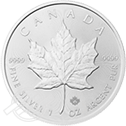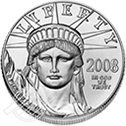Rates May Go Up Only to Come Right Back Down
With the U.S. and global economies on more solid footing, the Fed has been raising interest rates as it attempts to normalize monetary policy. Other central banks, such as the ECB, are also looking to end stimulus measures and begin the process of removing monetary stimulus through low rates, QE or both.
As central banks remove the punchbowl, however, markets will be left to stand on their own two feet. This could be compared to stock markets continuing to play the game, but now without a goalie. Indeed, the backstop provided by global central banks over the last several years has arguably been a major factor in stocks hitting record highs.
That may leave investors wondering just how markets may react as rates inch higher. Fortunately, however, rates are not likely to go a whole lot higher than they are right now. In fact, the Fed Funds rate could potentially approach the 3% level, but such a level could prove to be the top of the tightening cycle.
Not only could rates could act as a major headwind for stocks, but rising rates could potentially coincide with an increasing risk of recession. The chances of the next major recession hitting seem to be on the rise, and for numerous reasons. The potential for a global trade war, rising rates, and an aging economic expansion are just a few of the factors that could push the U.S. into recession.
As the nation falls into the grips of recession, the Fed will once again look to its primary tool-interest rates-to give the economy a lift. In other words, the Fed could find itself raising rates this year and next, only to end up bringing them right back down again. The problem, however, is that lowering key rates once again may not pack the same punch as the previous move by the Fed. This could leave the central bank looking for alternative ways to stimulate the economy, possibly even starting up the printing presses once again in the form of QE.
The potential ineffectiveness of the Fed’s policy tools could make the next recession much more challenging, and longer in duration. A slowing economy would almost certainly take equities down with it, and stock markets could lose a significant amount of value in the months and years ahead.
The rising risk of recession makes right now the ideal time to add diversity to your portfolio. There is one asset class among the perceived “safe havens” that stands out, and can potentially provide numerous benefits. That asset class is physical gold.
Gold may not only rise in value as investors seek out alternative asset classes, but it may also potentially provide a meaningful hedge against rising inflation, geopolitical turmoil and a weaker dollar.
Speak with an Advantage Gold account executive today about the potential benefits of gold ownership. Our associates are here to answer any questions you may have, and can even show you how to build a significant allocation in this key asset class using your IRA account.
Don’t wait for the next major recession to wipe out years’ worth of stock gains before taking action. Explore your options for gold ownership today. Call Advantage Gold at 1-800-341-8584 to get started now.
Tags: advantage gold, ecb, gold, interest rate hike, recession, tightening cycle, trade war


